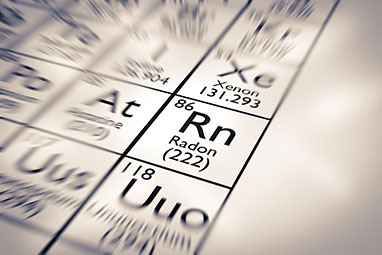Radon

Radon is an odorless, colorless gas that you cannot see, smell, or taste. But it may be a problem in your home. When you breathe air containing radon you increase your risk of getting lung cancer.
You cannot predict radon levels based on state, local and neighborhood radon measurements. Do not rely on radon test results taken in other homes in the neighborhood to estimate the radon level in your home. Homes that are next to each other can have different indoor radon levels. Testing is the only way to find out your home’s radon level.
The radon test result is important information about your home’s radon level. Radon measurement testers are required to follow a specific testing protocol. If you do the test yourself, you should carefully follow the testing protocol for your area or the radon testing checklist. If you hire a contractor to test your residence, they are required to be a Pennsylvania certified individual or company. Pennsylvania law requires all radon service providers, such as radon testers, radon mitigators and radon laboratories to be certified by DEP. You can determine a service provider’s certification to perform radon measurements or to mitigate your home in several ways. The list of Pennsylvania certified radon service providers is updated monthly. This list can be obtained by visiting our website at www.dep.state.pa.us, keyword: Radon. Scroll down to “Radon Services Directory.”
You can also obtain a hard copy of this directory or verify a certification by calling 1-800-23RADON. You also can verify certification by asking the contractor for a DEP-certified photo ID card. If you have property or are relocating to another state, check with that state’s radon office.
http://www.elibrary.dep.state.pa.us
Excerpts obtained from the booklet Pennsylvania’s Home Buyer’s and Seller’s Guide to Radon
Pennsylvania Department of Environmental Protection recommends that if you are buying or selling a home, have it tested for radon. Mitigate the radon if the radon level is 4.0 pCi/l or higher.
If I already had the home tested does it need to be retested?
No matter what kind of test was done, a potential buyer may ask for a new test, especially if:
The radon testing checklist items were not met;
1. The last test is not recent, e.g., within two years;
2. You have renovated or altered your home since you tested; or
3. The buyer plans to live in a lower level of the house than was tested, such as a basement suitable for occupancy but not currently lived in. You should test in the lowest level of the home which is suitable for occupancy. This means testing in the lowest level that you currently live in or a lower level not currently used, but which a buyer could use for living space without renovations.
